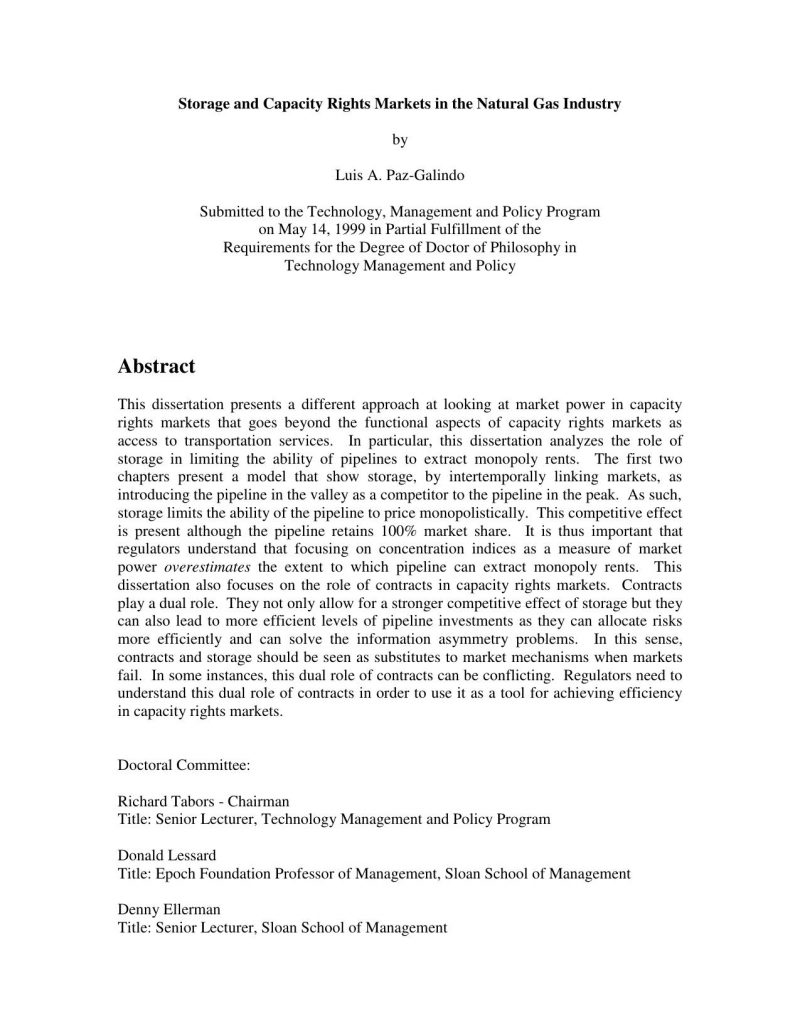Storage and Capacity Rights Markets in the Natural Gas Industry
Luis A. Paz-Galindo
Jun-99
This dissertation presents a different approach at looking at market power in capacity rights markets that goes beyond the functional aspects of capacity rights markets as access to transportation services. In particular, this dissertation analyzes the role of storage in limiting the ability of pipelines to extract monopoly rents. The first two chapters present a model that show storage, by intertemporally linking markets, as introducing the pipeline in the valley as a competitor to the pipeline in the peak. As such, storage limits the ability of the pipeline to price monopolistically. This competitive effect is present although the pipeline retains 100% market share. It is thus important that regulators understand that focusing on concentration indices as a measure of market power overestimates the extent to which pipeline can extract monopoly rents. This dissertation also focuses on the role of contracts in capacity rights markets. Contracts play a dual role. They not only allow for a stronger competitive effect of storage but they can also lead to more efficient levels of pipeline investments as they can allocate risks more efficiently and can solve the information asymmetry problems. In this sense, contracts and storage should be seen as substitutes to market mechanisms when markets fail. In some instances, this dual role of contracts can be conflicting. Regulators need to understand this dual role of contracts in order to use it as a tool for achieving efficiency in capacity rights markets.



